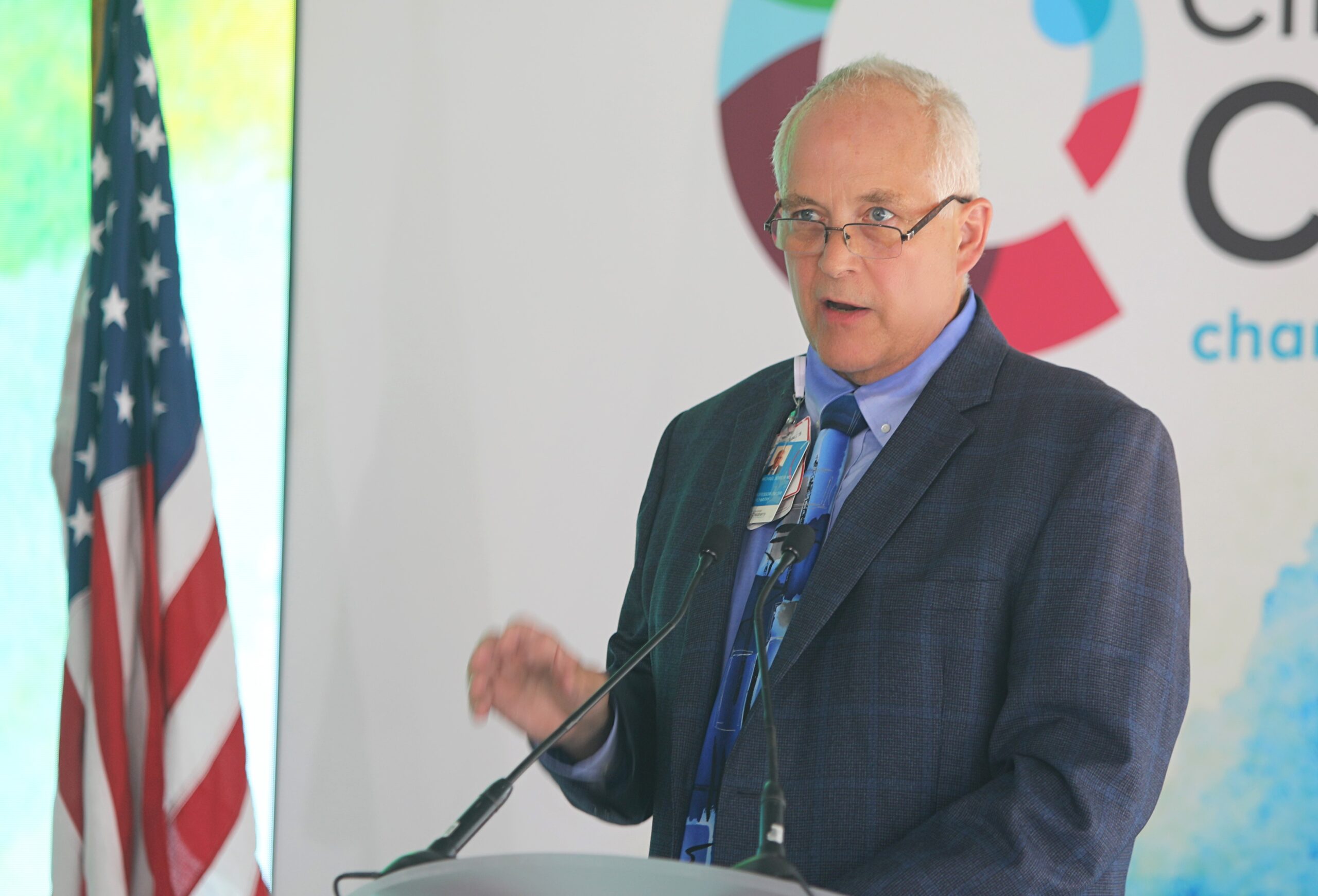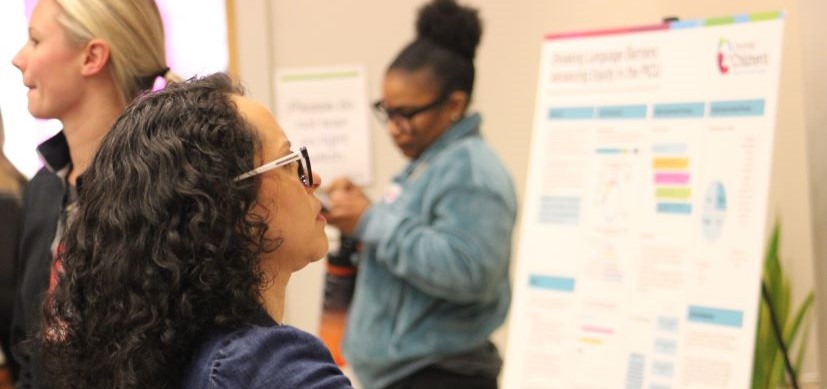Dr. Michael Sorter: Tireless Mental Health Care System Builder
Research By: Michael Sorter, MD
Post Date: November 1, 2024 | Publish Date:

Long tenure, many achievements as psychiatry leader at Cincinnati Children’s
Many dedicated people have contributed to Cincinnati Children’s becoming the nation’s largest provider of inpatient pediatric mental health services. Few have been more impactful than Michael Sorter, MD.
Now, after a long career entirely practiced in Cincinnati, including 21 years as director of the Division of Child and Adolescent Psychiatry, Sorter has stepped down as the health system’s longest tenured divisional leader. Sorter remains a faculty member and will continue his clinical roles.
Sorter’s legacy at Cincinnati Children’s has been impressive.
“His impact on the mental health system, both locally and nationally, is undeniable. He has truly improved the lives of hundreds of thousands of children and their families. He has created a legacy of healing and hope that will have a great impact for many years to come,” says Suzanne Sampang, MD, the division’s clinical medical director.
Thanks to his clinical practice and executive leadership, a generation of children and teens have overcome a range of moderate and severe mental disorders to grow into healthy, happy, and successful adults. In fiscal 2023 alone, the psychiatry team reported more than 7,000 emergency department consults, more than 120,000 outpatient visits, and more than 34,000 inpatient days.
Sorter’s legacy will continue through a legion of child psychiatrists who encountered him as an educator, mentor, and colleague. And his message will echo through a vast network of leaders and advocates striving to provide access to all the children with still-untreated mental illnesses.
“I was so fortunate to have Dr. Sorter as my director for 20 years,” says colleague Drew Barzman, MD. “Dr. Sorter was consistently supportive and motivating. He always listened to my concerns and provided helpful feedback. In addition, Sorter launched our research by providing innovative and creative ideas. He always had my back even when difficult situations arose.”
In many cases, the children and teens who encountered Sorter did so at the very lowest points in their lives, at moments of profound stress. They found a tall, calm, and smiling man they could trust to help them through their crises, lead them to the best available care and advocate for improvements. Not every outcome was positive, but many have been. And much like a football coach, Sorter frequently urged his teams to draw upon those successes for inspiration.
Even early in his career, the challenge in child psychiatry was not the lack of effective helpful treatments, but the vast gap in the resources needed to meet the demand. Sorter has worked for decades to shrink that gap. From classrooms to board rooms to community meeting halls, Sorter would repeat the statistics like mantras:
- Suicide is the second-leading cause of death among children and youth aged 10-24.
- Nearly half of all children with diagnosable mental illnesses go untreated.
- The long-running shortfall in the supply of mental health professionals continues.
“One in every 10 children has a disability associated with or due to mental health issues. It’s a tragedy that those needs don’t get addressed. We want to make sure that we do not miss any of those kids,” Sorter said in 2021 during a groundbreaking event.
Sorter devoted his career to developing comprehensive systems of mental and behavioral healthcare, focusing heavily on areas including aggression, mood disorders and suicide.
He earned his medical degree at the University of Cincinnati in 1985. He also completed his residency in psychiatry (1988) and his fellowship in child psychiatry (1990) at UC and launched his practice at Cincinnati Children’s.
By 1995, Sorter emerged as a leader, serving as project coordinator for the launch of a 10-bed inpatient adolescent psychiatry unit at Location C (4-East), which treated children aged 13-18 for suicide-related drug overdoses, depression, anorexia, bulimia, and other acute needs.
In 1997, he became director of inpatient psychiatric services. By 2003, Sorter had become division director.
Far-reaching research
Sorter was active in studying the roots of violent and aggressive behavior among children with mental illnesses, authoring and co-authoring more than 80 scientific publications. His contributions include textbook chapters on psychotic disorders; child-focused evaluations of medications for depression, bipolar and psychotic disorders; and a variety of collaborations to develop screening tools and improved care programs.
In the early 2000s, Sorter worked with experts including Tracy Glauser, MD, Alexander Vinks, PharmD, PhD, and John Pestian, PhD, to develop the Genetic Pharmacology Service at Cincinnati Children’s. The program built upon findings that key gene variations could predict how quickly a patient would metabolize psychiatric medications; a factor that strongly influences the effectiveness of a standard dose. Eventually, these discoveries contributed to the launch of Mason, Ohio-based Assurex Health Inc. (later acquired by Myriad Genetics) and the widely used GeneSight psychotropic test.
Read more about the service in Clinical Pharmacology & Therapeutics.
More recently, Sorter continued collaborations with Glauser, Pestian, Barzman, and others in a hunt to use emerging artificial intelligence technologies to develop improved decision-support tools. The goal: to predict rather than simply react to violent behavior, be it self-harm through suicide, violence against others at school, or aggressive outbursts during inpatient care.
While his colleagues often were the experts in machine learning, natural language processing, and other aspects of the work, Sorter was the expert in psychiatry who focused on how the science could be applied in care settings.
Read more about these advances in Suicide & Life-Threatening Behavior (2016), Psychiatric Quarterly (2018), and Psychiatric Quarterly (2022).
Driving force in expanding access
In fact, Sorter’s leadership as a program builder stands out across his career.
Starting with the new inpatient unit for adolescents in 1995 and continuing through 2023 when the $108 million project to rebuild and expand the William K. Schubert, MD Mental Health Center was completed, Sorter has worked to expand access to child mental health services.
When other providers––including University Hospital, Jewish Hospital, and the Millcreek Psychiatric Center for Children––closed inpatient units for adolescent care, Sorter repeatedly inspired Cincinnati Children’s to step up for the community.
After opening the 10-bed unit at Location C (4-East) another 16 beds were opened in 1997 at Location C (4-West). Then in 2002, Cincinnati Children’s opened its College Hill campus, which expanded its inpatient and residential capacity to 100 beds. With the recent expansion, the health system now has more than 130 inpatient beds for psychiatric care.
But adding beds was never seen as enough to meet the demand. Sorter also was an integral part of other ways to expand mental health services, including:
- Launching and building the system’s Intensive Outpatient Program.
- Establishing the 24-hour Psychiatric Intake Response Center (PIRC) in 2001.
- Collaborating in 2003 with Cincinnati Public Schools and others to develop the city’s first school-based mental health clinics, which have been expanded since to more than 70 schools.
- Opening a Neurobehavioral Unit in 2007 to serve children and adolescents with intellectual disability and autism.
- Building a Bridge program to guide more psychiatric patients away from the emergency department.
- Hosting regular collaboration meetings among eight area mental health agencies.
- Constant advocacy at the state and federal levels for improved funding of childhood mental health services.
“Sorter’s unwavering support for the start and growth of new clinical programs has led to expanded access to mental healthcare services and innovative models of care. He has literally built a system of care for pediatric mental health in the city from almost nothing,” says Suzanne Sampang, MD, clinical medical director with the Division of Child and Adolescent Psychiatry.
Read more about the progress made in the Journal of Pediatrics (2023).
Building the mental health workforce
In addition to building a nationally leading childhood mental health care system, Sorter also strived to expand the professional workforce. As of 2023, the division of psychiatry had grown to include 37 physician faculty, 50 psychiatric APRNs, 106 therapists and social workers, and many other staff.
In addition, residents and fellows trained here have gone on to serve children in many other communities.
Sorter’s many awards include being recognized as an outstanding mentor by the American Academy of Child and Adolescent Psychiatry and as an exceptional psychiatrist by the National Alliance of Mental Illness (NAMI).
Yet even as he retires from his role leading the division, the crisis in youth mental health care continues. And like a mantra, these words Sorter wrote nearly 20 years ago still hold true:
“National data show that most kids with mental health difficulties do not get served. In the past, these kids may not have made it to the mental health system. They may have ended up in the justice system. Today the pediatric community is more focused on mental health issues. This has been a grossly underserved population and still is, but hopefully, as we expand our services, we can work with community pediatricians to help an increasing number of these children and families.”
Don’t Miss a Post:
- Subscribe to the Research Horizons Newsletter
- Follow Cincinnati Children’s Research Foundation on X: @cincyresearch
Research By

My work mainly focuses on the development of a comprehensive system of behavioral healthcare to address the illness and suffering of young people and families struggling with mental illness.







